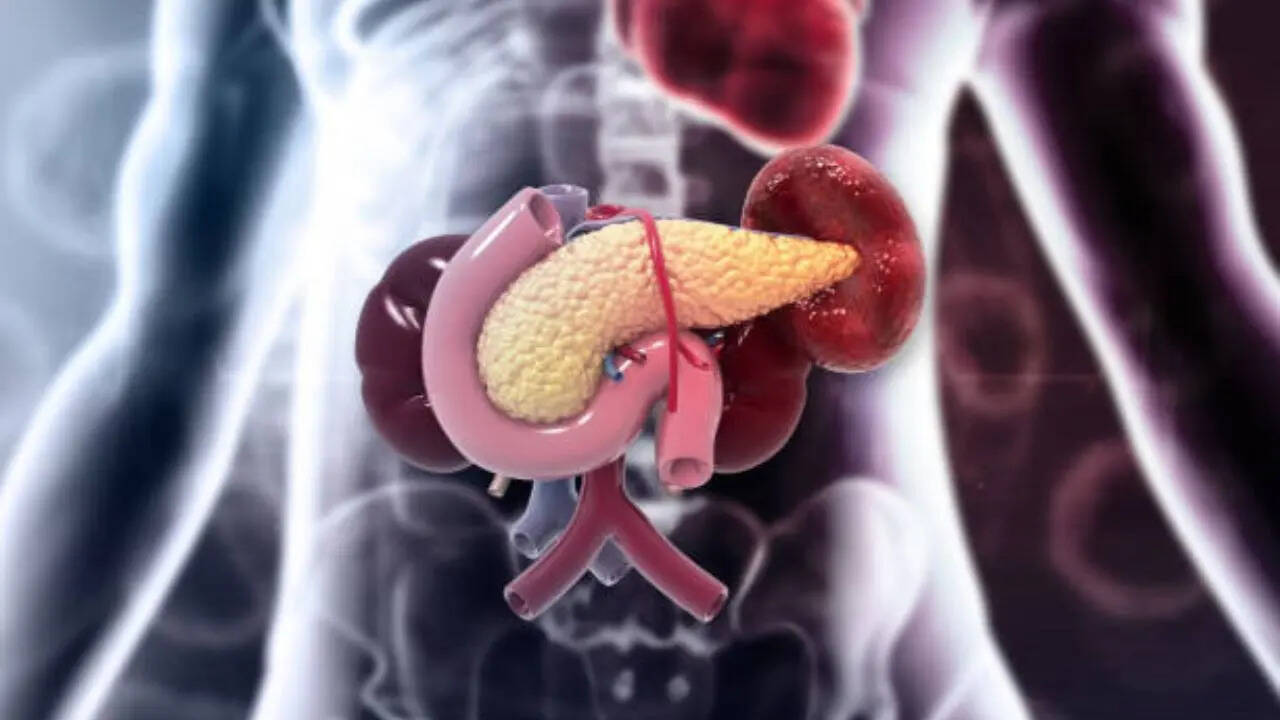Health
Scientists Unveil Early Warning System for Pancreatic Cancer

Pancreatic cancer, often referred to as the “silent killer,” is notorious for being diagnosed at an advanced stage, significantly limiting treatment options. Recently, scientists at UC San Diego have developed a promising biological early warning system to detect precancerous pancreatic cells, potentially transforming the landscape of diagnosis and treatment for this aggressive disease.
Globally, pancreatic cancer ranks as the tenth most common cancer and is the seventh leading cause of cancer-related deaths. The incidence and mortality rates are notably higher in men than in women, and the risk increases with age, particularly for those over 65. The primary form, known as pancreatic ductal adenocarcinoma (PDAC), arises in the pancreatic duct, a crucial channel connecting the pancreas to the small intestine.
The late-stage diagnosis of pancreatic cancer is attributed to its subtle symptoms, which often lead to misattribution to less severe health issues. Patients frequently experience chronic fatigue due to the blockage of digestive enzymes caused by tumours, a condition that can go unnoticed until significant progression has occurred.
Breakthrough in Early Detection
The innovative research led by UC San Diego focuses on utilizing fecal samples as a noninvasive method for early detection of PDAC. Researchers have discovered that the gut, home to trillions of bacteria, plays a crucial role in reflecting an individual’s health status. As these microbial communities evolve, they can signal the presence of disease.
Experts highlight that PDAC develops in the region of the pancreas that connects to the gut, making stool samples an effective tool for monitoring changes that may indicate cancer. Regular bowel movements provide a convenient opportunity to assess the health of the pancreas and detect early signs of trouble.
The study emphasizes the role of a specific protein known as STAT3, which becomes activated under stressful or inflammatory conditions. Once activated, STAT3 triggers a series of biological reactions that contribute to tumour growth and treatment resistance. By blocking the pathway of STAT3, researchers have observed delays in tumour development, opening avenues for potential future therapies.
Implications for Treatment and Research
The implications of this research extend beyond early detection. Experts believe that the findings related to STAT3 and its interaction with the gene Integrin β3 (ITGB3) could influence every stage of pancreatic cancer, from initial precancerous lesions to fully drug-resistant tumours. This comprehensive understanding of tumour biology may lead to more effective treatment strategies that could improve patient outcomes significantly.
Recognizing the potential of this research, the scientific community is optimistic about the future of pancreatic cancer diagnosis and treatment. The prospect of using fecal samples as a routine screening tool represents a significant step forward in the fight against one of the deadliest cancers.
As this exciting research progresses, it underscores the importance of continued investigation into early warning signs and effective treatments for pancreatic cancer, a disease that remains a formidable challenge in oncology. The advancements made by the team at UC San Diego offer hope for earlier detection and potentially more effective management of this often-overlooked cancer.
-

 World5 months ago
World5 months agoSBI Announces QIP Floor Price at ₹811.05 Per Share
-

 Lifestyle5 months ago
Lifestyle5 months agoCept Unveils ₹3.1 Crore Urban Mobility Plan for Sustainable Growth
-

 Science4 months ago
Science4 months agoNew Blood Group Discovered in South Indian Woman at Rotary Centre
-

 World5 months ago
World5 months agoTorrential Rains Cause Flash Flooding in New York and New Jersey
-

 Top Stories5 months ago
Top Stories5 months agoKonkani Cultural Organisation to Host Pearl Jubilee in Abu Dhabi
-

 Sports4 months ago
Sports4 months agoBroad Advocates for Bowling Change Ahead of Final Test Against India
-

 Science5 months ago
Science5 months agoNothing Headphone 1 Review: A Bold Contender in Audio Design
-

 Top Stories5 months ago
Top Stories5 months agoAir India Crash Investigation Highlights Boeing Fuel Switch Concerns
-

 Business5 months ago
Business5 months agoIndian Stock Market Rebounds: Sensex and Nifty Rise After Four-Day Decline
-

 Sports4 months ago
Sports4 months agoCristian Totti Retires at 19: Pressure of Fame Takes Toll
-

 Politics5 months ago
Politics5 months agoAbandoned Doberman Finds New Home After Journey to Prague
-

 Top Stories5 months ago
Top Stories5 months agoPatna Bank Manager Abhishek Varun Found Dead in Well









